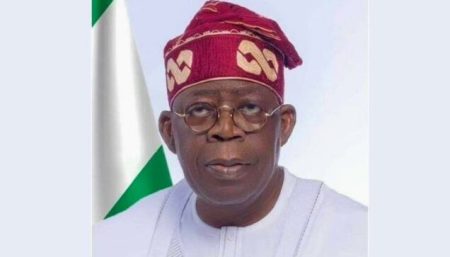The Escalating Costs of Nigerian Executive Branch International Travel and Diplomacy in 2024
In 2024, the Nigerian Presidency witnessed a substantial surge in expenditure on foreign currency for international travel by top government officials, including President Bola Tinubu, Vice President Kashim Shettima, and First Lady Oluremi Tinubu. Data from GovSpend, a government spending tracker, revealed a 23% increase in foreign currency purchases for these trips, reaching a total of over N23 billion compared to N18.63 billion in 2023. This escalating cost is primarily attributed to the depreciating value of the naira against major global currencies, as well as a notable increase in the frequency and scope of these international engagements. While the government maintains that these trips are crucial for Nigeria’s diplomatic relations and international standing, the financial burden they impose during a period of economic challenges has sparked significant concerns.
A detailed breakdown of the expenditure reveals the considerable sums allocated to various trips. President Tinubu’s trips accounted for a significant portion, including N1.04 billion for a February 2024 visit to Ethiopia and a staggering N5.07 billion in April 2024 for the presidential air fleet’s operational and foreign exchange needs. The Vice President’s travels also contributed significantly, with N426.88 million spent on a January 2024 trip to Switzerland and an additional N176.77 million for a trip to Côte d’Ivoire in the same month. The First Lady’s engagements abroad also incurred considerable costs, with N149.79 million and N202.39 million allocated for trips to France and Mozambique, respectively. The Office of the Chief of Staff also incurred foreign exchange expenses, including N46.5 million for the President’s trip to the United Kingdom and N12.7 million for Nigeria’s participation in the 78th session of the UN General Assembly.
The rising expenditure on foreign exchange underscores the financial strain on the Nigerian government. The devaluation of the naira against major currencies necessitates larger sums of local currency to acquire the same amount of foreign exchange, thus amplifying the cost of international travel. The President’s 2024 trip to Ethiopia, for instance, cost N1.04 billion, a stark increase from the N136.12 million spent on a similar trip in 2023. Similarly, the Vice President’s trip to Ethiopia in 2023 cost a mere N43.02 million, highlighting the substantial impact of the naira’s depreciation on travel expenses. This trend raises serious questions about the fiscal sustainability of such extensive foreign travel, especially given Nigeria’s ongoing economic difficulties.
Further analysis of government spending reveals that the Presidency purchased over $1.274 billion for 13 disclosed forex-related transactions in 2024. The largest single purchase, at $1.271 billion, was for the President’s trip to Dubai. Other significant expenditures include $483,277 for the Vice President’s trip to Switzerland, $692,265 for the President’s trip to Ethiopia, and various sums for the First Lady’s trips to France, Mozambique, and Ethiopia. Notably, this data represents only a fraction of the total number of recorded transactions (13 out of 43), suggesting that the actual expenditure on foreign exchange could be considerably higher. This lack of complete transparency raises further concerns about the true extent of government spending on foreign travel.
Beyond foreign exchange, spending on air travel for top government officials also experienced a dramatic increase. Data from the GovSpend platform shows a staggering 344% rise in air travel expenses in 2024, reaching N7.83 billion compared to N1.77 billion in 2023. A significant portion of these funds was channeled through Hinterland Travel & Tours Limited, with substantial payments for both domestic and international presidential trips. Other travel agencies, including Travel Options Ltd and Overland Travels and Tours Limited, also received millions of naira for air ticket purchases. Additionally, expenses for official educational and conference trips, such as a N5.35 million study visit to Morocco for a seminar on e-procurement, contributed to the overall surge in air travel costs.
The substantial increase in air travel spending, coupled with the escalating foreign exchange expenditure, has drawn criticism and raised concerns about the government’s fiscal responsibility. While international travel is acknowledged as essential for diplomacy, professional development, and engagement with the global community, critics argue that the scale of these expenditures may be excessive, particularly given the country’s economic challenges. The Socio-Economic Rights and Accountability Project (SERAP) has voiced particular concern, highlighting the potential misuse of public funds and the misalignment of government priorities with the economic realities faced by ordinary Nigerians. SERAP’s Deputy Director, Kolawole Oluwadare, pointed out the discrepancy between capital and recurrent expenditure, suggesting that the government’s focus on the latter is detrimental to national development.
Odeh Friday, Country Director of Accountability Lab Nigeria, echoed these concerns, emphasizing the need for increased transparency and accountability in the management of public finances. He questions the effectiveness and value of these expenditures, suggesting that some of them are wasteful and ultimately detrimental to the interests of Nigerian citizens. The escalating costs of international travel and diplomacy for Nigeria’s executive branch in 2024 underscore the urgent need for a critical review of government spending practices and a renewed focus on fiscal prudence and accountability.



